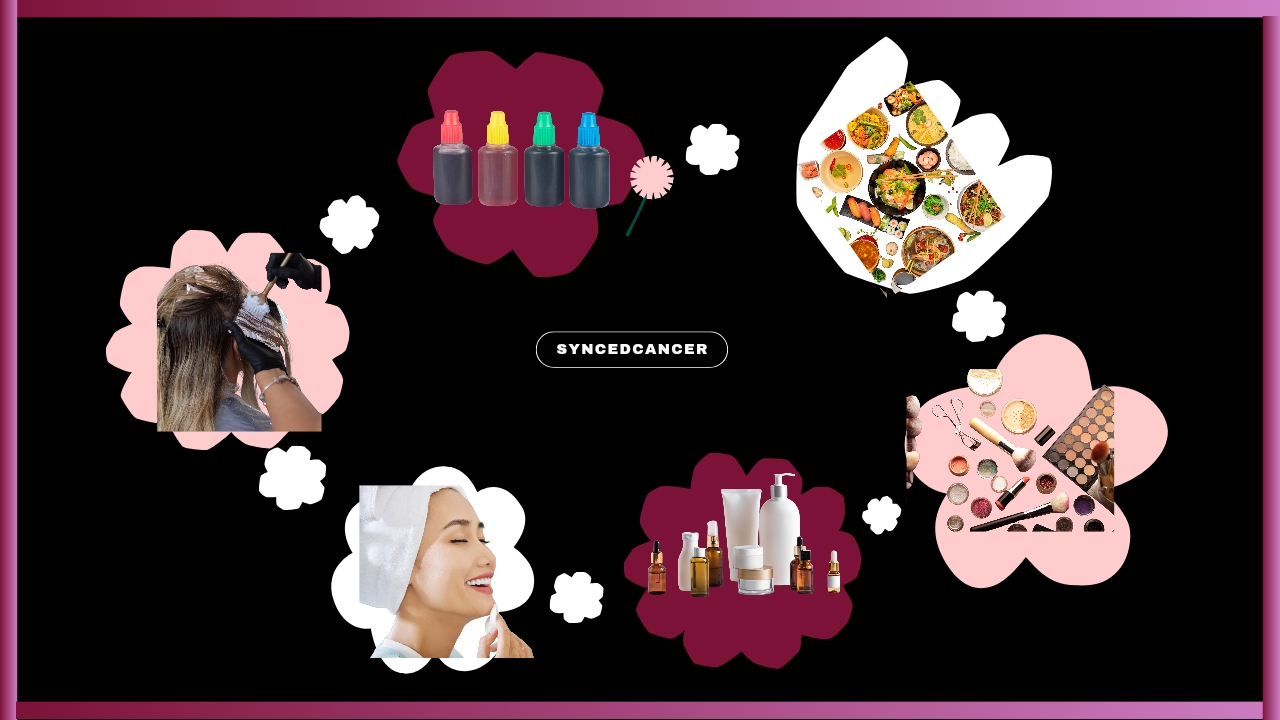Many Nigerian women have heard about breast cancer. Some know it can run in families, while others believe it comes from lifestyle choices alone. What is less talked about is how chemicals and environmental pollution, things we face every day, can also play a role in breast health.
Chemicals are not only found in factories or laboratories. They are in everyday products like creams, soaps, hair relaxers, plastics, food packaging, and even the air we breathe. Over time, repeated exposure to certain harmful substances may increase the risk of breast cancer.
How Chemicals Affect the Body
Chemicals enter the body through the skin, food, water, or air. Some are quickly removed, but others stay longer and build up in fat tissues, including the breast. The main ways they can affect health are:
- Carcinogens (cancer-causing agents) directly damage DNA or make cells grow abnormally. Over time, they can trigger uncontrolled growth, leading to cancer.
- Hormone Disruptors (endocrine disruptors): Some chemicals act like estrogen, a female hormone influencing breast development. Too much estrogen-like activity may encourage the growth of breast tumors.
- Combined Effects: Even if each chemical is small, combined exposures from cosmetics, food, and the environment may weaken the body’s defenses.
Everyday Exposures Nigerian Women Face
- Cosmetics and Personal Care Products: Many beauty products contain parabens, preservatives that can act like hormones in the body. Hair relaxers and certain dyes have been linked in studies to a higher chance of breast tumors. Some skin-lightening creams may contain mercury or other metals that harm health.
- Plastics and Food Packaging: Plastics often contain Bisphenol A (BPA). BPA can leak into food and drinks when bottles or containers are heated. Even thermal receipts (the ones given in supermarkets) contain BPA, which can enter the body through the skin.
- Food and Water: Pesticides that protect crops can remain on fruits and vegetables. Washing may not always remove them completely. Polluted water sources can carry heavy metals like arsenic and chemicals called PFAS (sometimes called “forever chemicals” because they never fully break down).
- Air and Dust: Smoke from traffic, generators, and burning firewood releases harmful chemicals that can irritate the lungs and affect the body. Indoor dust may carry tiny particles from furniture, paints, or cleaning sprays. These can be breathed in or swallowed unknowingly.
- Workplace Risks: Nurses and radiographers may face repeated exposure to X-rays or solvents. Women working in factories or textile industries may come into contact with dyes and chemicals daily. Market sellers or transport workers often spend hours in heavy traffic, inhaling exhaust fumes.
- Community Pollution: Open burning of plastics and waste, common in many Nigerian towns, releases dioxins and other harmful chemicals into the air. Industrial zones may pollute nearby water sources, affecting entire communities.
- Long-lasting Chemicals: Some chemicals banned long ago, like DDT, remain in the soil and food chain. They do not disappear easily and can continue to affect health.
Why Timing of Exposure Matters
Breast tissue changes throughout life — during puberty, pregnancy, and menopause. At these times, the breast is susceptible to hormone changes and chemical exposures.
- Early-life exposure: Chemicals that act like estrogen may have a greater effect if a girl is exposed before puberty.
- During pregnancy, the body stores more fat, which can trap chemicals for years.
- Menopause: Changes in hormone levels may interact with stored chemicals, affecting breast health later in life.
This shows why women should be careful at every stage of life, as small exposures now may add up in the future.
What Nigerian Women Can Do to Reduce Risk
- Choose Safer Products: Read labels; avoid parabens, phthalates, and BPA where possible. Reduce the frequent use of harsh hair relaxers and dyes. Be cautious with skin-lightening creams—only buy from trusted sources.
- Food and Water Safety: Wash fruits and vegetables thoroughly, soak in vinegar or salt water before eating. When possible, choose local organic produce. Use water filters if you live in areas with polluted water supplies.
- Safer Home Practices: Keep rooms well-ventilated; open windows for fresh air. Avoid burning plastics or using kerosene stoves for long hours indoors. Use natural cleaning products where possible.
- Healthy Lifestyle Choices: Regular exercise helps the body remove toxins and balance hormones. Maintain a healthy weight, as excess fat stores more chemicals. Reduce alcohol and avoid smoking, as both increase cancer risk.
Conclusion
Breast cancer is not only about family history or lifestyle. The chemicals and pollution we face daily—from cosmetics to plastics, food, and air—may also play a role. Nigerian women can protect themselves by making small, informed choices: choosing safer products, washing food well, improving indoor air, and seeking medical check-ups. The most crucial step is personal awareness. Do not assume you are safe. Talk to your doctor about your personal risks, especially if you live or work in areas with high pollution or chemical use. A simple lifestyle change today can protect your health tomorrow. Take charge of your breast health.
Knowledge is power, and your actions can make the difference.
REferences
- Susan G. Komen – komen.org/blog/komen-perspectives-environmental-chemicals-and-breast
Assessed 25th September, 2025
2. Breast Cancer Preventive Partners – https://www.bcpp.org/our-work/exposures-to-avoid/
Assessed 25th September, 2025
3. Breast Cancer Action – https://www.bcaction.org/breast-cancer-and-the-environment/
Assessed 25th September, 2025











What do you think?
It is nice to know your opinion. Leave a comment.